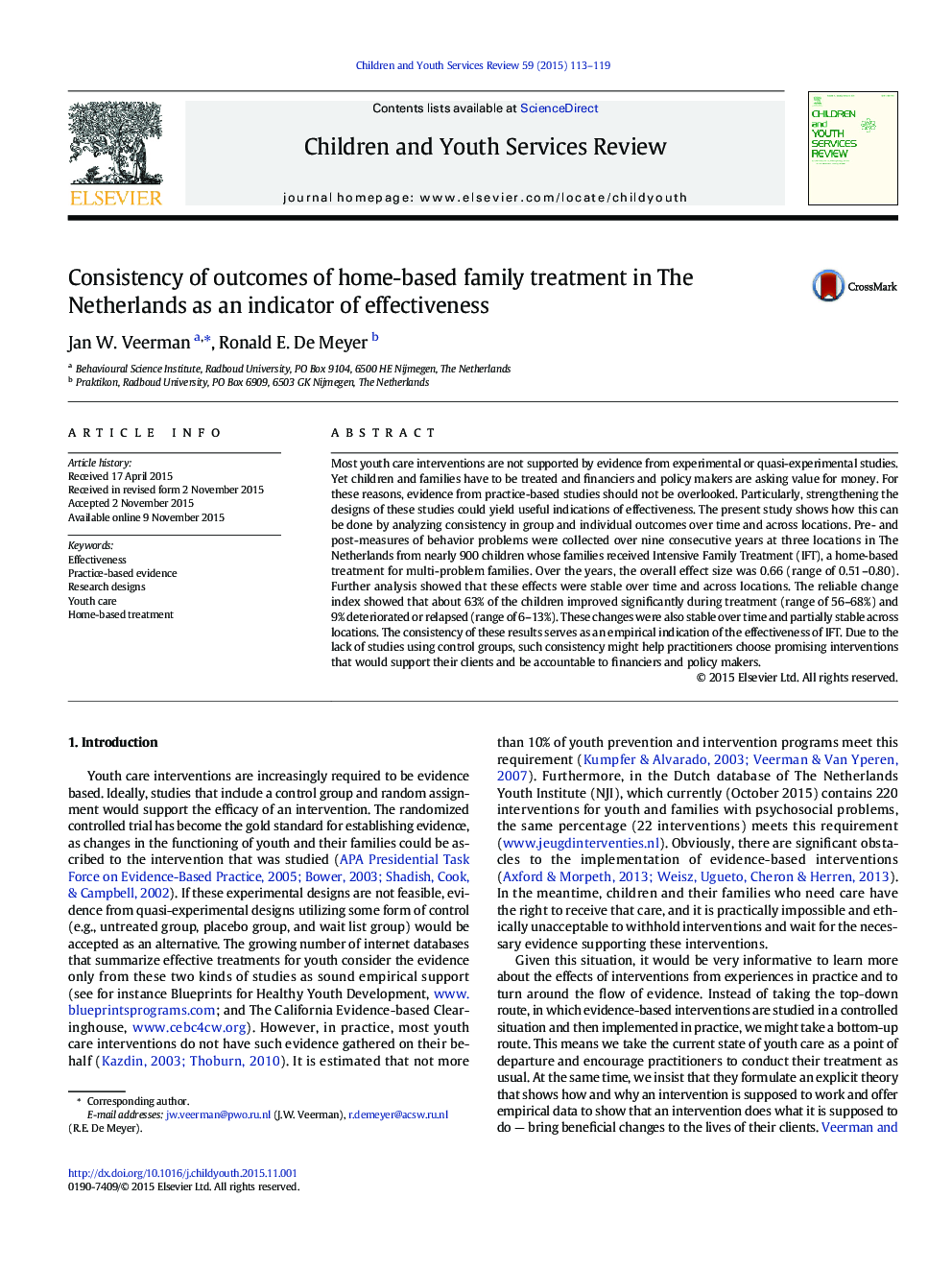| Article ID | Journal | Published Year | Pages | File Type |
|---|---|---|---|---|
| 6833894 | Children and Youth Services Review | 2015 | 7 Pages |
Abstract
Most youth care interventions are not supported by evidence from experimental or quasi-experimental studies. Yet children and families have to be treated and financiers and policy makers are asking value for money. For these reasons, evidence from practice-based studies should not be overlooked. Particularly, strengthening the designs of these studies could yield useful indications of effectiveness. The present study shows how this can be done by analyzing consistency in group and individual outcomes over time and across locations. Pre- and post-measures of behavior problems were collected over nine consecutive years at three locations in The Netherlands from nearly 900 children whose families received Intensive Family Treatment (IFT), a home-based treatment for multi-problem families. Over the years, the overall effect size was 0.66 (range of 0.51-0.80). Further analysis showed that these effects were stable over time and across locations. The reliable change index showed that about 63% of the children improved significantly during treatment (range of 56-68%) and 9% deteriorated or relapsed (range of 6-13%). These changes were also stable over time and partially stable across locations. The consistency of these results serves as an empirical indication of the effectiveness of IFT. Due to the lack of studies using control groups, such consistency might help practitioners choose promising interventions that would support their clients and be accountable to financiers and policy makers.
Related Topics
Health Sciences
Medicine and Dentistry
Perinatology, Pediatrics and Child Health
Authors
Jan W. Veerman, Ronald E. De Meyer,
